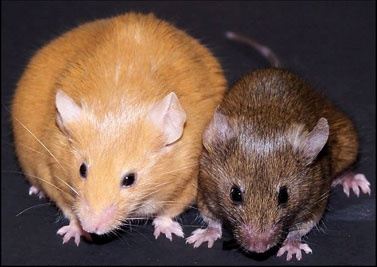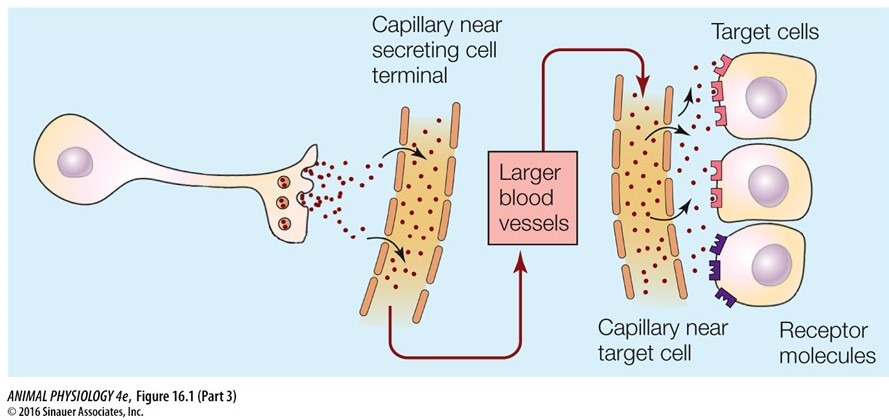Animal Phys Exam 2
1/25
There's no tags or description
Looks like no tags are added yet.
Name | Mastery | Learn | Test | Matching | Spaced | Call with Kai |
|---|
No analytics yet
Send a link to your students to track their progress
26 Terms
Which of the following are considered major mechanisms of epigenetic marking? SELECT ALL THAT APPLY.
Covalent modification of histone proteins
Chlorofluorocarbons
Oxidative phosphorylation
DNA methylation
Covalent modification of histone proteins
DNA methylation
What is the name of the scientific field that examines inheritable traits not caused by changes in the DNA code?
non-codal genetics
epigenetics
genogenetics
proteomics
epigenetics
If you suspect you have an epigenetic tendency toward a psychological disorder, you should:
seek treatment from qualified professionals.
buy a home de-methylation kit
assume that your condition is permanent
blame your grandparents for having bad luck
seek treatment from qualified professionals
Is the following scenario an example of epigenetics?
Snails develop an ordinary shell when crabs are absent from their environment, but they develop a thickened shell when crabs are present.
No this scenario is not an example of epigenetics
In some forms of epigenetic modification, when a gene is “marked,” its
genetic code is temporarily modified
expression is permanently altered
genetic code is permanently modified
expression is semi-permanently altered
expression is semi-permanently altered

Consider the following example of agouti mice. These mice have a certain gene called agouti, which gives them a golden-yellow coat coloring and tends to increase obesity and the risk of its associated diseases.
These two mice above are monozygotic twins, which means they had the exact same DNA sequence at birth. The number of agouti/non-agouti pups born in a litter can be somewhat controlled by altering the pregnant mother’s diet. If the mother is given larger amounts of folic acid-containing nutrition (a good source of methyl groups), more brown mice (methylated at the agouti gene) are born.
Is the above example an example of epigenetics?
Yes; this is an example of epigenetics.
A circadian rhythm has a period of about:
a month (30 days)
a day (24 hours)
half a day (12 hours)
a year (365 days)
a day (24 hours)
A biological rhythm brought into phase with an environmental rhythm is said to be:
endogenous
a zeitgeber
a free-running circadian rhythm
entrained
entrained
Which of the following is NOT considered to be related to biological clocks?
Photoperiods
Peristalsis
Pineal gland
Melatonin
Peristalsis
Rhythms that continue in the absence of environmental information about time are called:
circadian rhythms
free-running circadian rhythms
endogenous rhythms
entrained rhythms
endogenous rhythms
The action of epinephrine and norepinephrine on the heart is a good example of an additive effect. Each of these hormones separately produces an increase in cardiac rate; acting together in the same concentrations, they stimulate an even greater increase in cardiac rate.
Does this scenario describe synergism, permissiveness or antagonism?
synergism
Prior exposure of the uterus to estrogen, for example, induces the formation of receptor proteins for progesterone, which improves the response of the uterus when it is subsequently exposed to progesterone.
Does this scenario describe synergism, permissiveness or antagonism?
permissiveness
Epinephrine alone can only weakly stimulate lipolysis but when small amount of thyroid hormone is present, the same amount of epinephrine can stimulate lipolysis much more powerfully.
Is this scenario an example of synergism, permissiveness, or antagonism?
permissiveness
Testosterone and follicle – stimulating hormones are both required for normal sperm production.
Is this an example of synergism, permissiveness, or antagonism?
synergism
Parathyroid hormone (PTH) from the parathyroid glands increases Ca 2+ in the blood by increasing Ca 2+ absorption in the intestines and reabsorption in the kidneys and stimulating Ca 2+ release from bones. Calcitonin (CT) produces the opposite effect by inhibiting the breakdown of bone matrix and decreasing the release of calcium into the blood.
Is this scenario an example of synergism, permissiveness, or antagonism?
antagonism

The image above best represents what type of chemical signal?
autocrine
neurosecretory (neuroendocrine)
neurotransmitter
paracrine
hormone (nonneural)
neurosecretory (neuroendocrine)
For the following terms, determine if the hormone type is peptide, steroid, catecholamine, or both peptide and catecholamine.
Synthesized at rough ER
peptide hormones
Receptors are located on the plasma membrane of target cells (no expectations)
both peptide and catecholamine hormones
Primary method of response works by synthesizing new proteins (i.e. alter gene expression)
steroid hormones
Derived from cholesterol
steroid hormones
water-soluble
both peptide and catecholamine hormones
Site of secretion is mainly the anterior pituitary gland
peptide hormones
Consider the following endocrine relationships and use this information to complete the endocrine application questions:
CRH (corticotropin-releasing hormone) stimulates ACTH (adrenocorticotropic hormone) secretion
ACTH stimulates cortisol secretion
Cortisol inhibits CRH and ACTH secretion
Cortisol increases protein breakdown and increases blood glucose
Increased blood glucose stimulates insulin secretion
Insulin reduces the blood glucose level
Based on the information provided in the above scenario, answer the following question.
If the adrenal gland cannot produce cortisol, which of the following two statements are expected? SELECT 2 ANSWERS.
Decreased CRH secretion
Increased CRH secretion
Decreased ACTH secretion
Increased ACTH secretion
Increased CRH secretion
Increased ACTH secretion
Consider the following endocrine relationships and use this information to complete the endocrine application questions:
CRH (corticotropin-releasing hormone) stimulates ACTH (adrenocorticotropic hormone) secretion
ACTH stimulates cortisol secretion
Cortisol inhibits CRH and ACTH secretion
Cortisol increases protein breakdown and increases blood glucose
Increased blood glucose stimulates insulin secretion
Insulin reduces the blood glucose level
Based on the information provided in the above scenario, answer the following question.
An injection of ACTH will result in which of the following two statements? SELECT 2 ANSWERS.
Decreased CRH secretion
Increased cortisol secretion
Decreased cortisol secretion
Increased CRH secretion
Decreased CRH secretion
Increased cortisol secretion
Consider the following endocrine relationships and use this information to complete the endocrine application questions:
CRH (corticotropin-releasing hormone) stimulates ACTH (adrenocorticotropic hormone) secretion
ACTH stimulates cortisol secretion
Cortisol inhibits CRH and ACTH secretion
Cortisol increases protein breakdown and increases blood glucose
Increased blood glucose stimulates insulin secretion
Insulin reduces the blood glucose level
Based on the information provided in the above scenario which of the following two statements give conditions that will INCREASE insulin secretion? SELECT 2 OPTIONS.
1. Injection of cortisol.
2. Adrenal gland cannot produce cortisol.
3. Injection of ACTH.
4. Pituitary gland cannot produce ACTH.
Injection of cortisol
Injection of ACTH